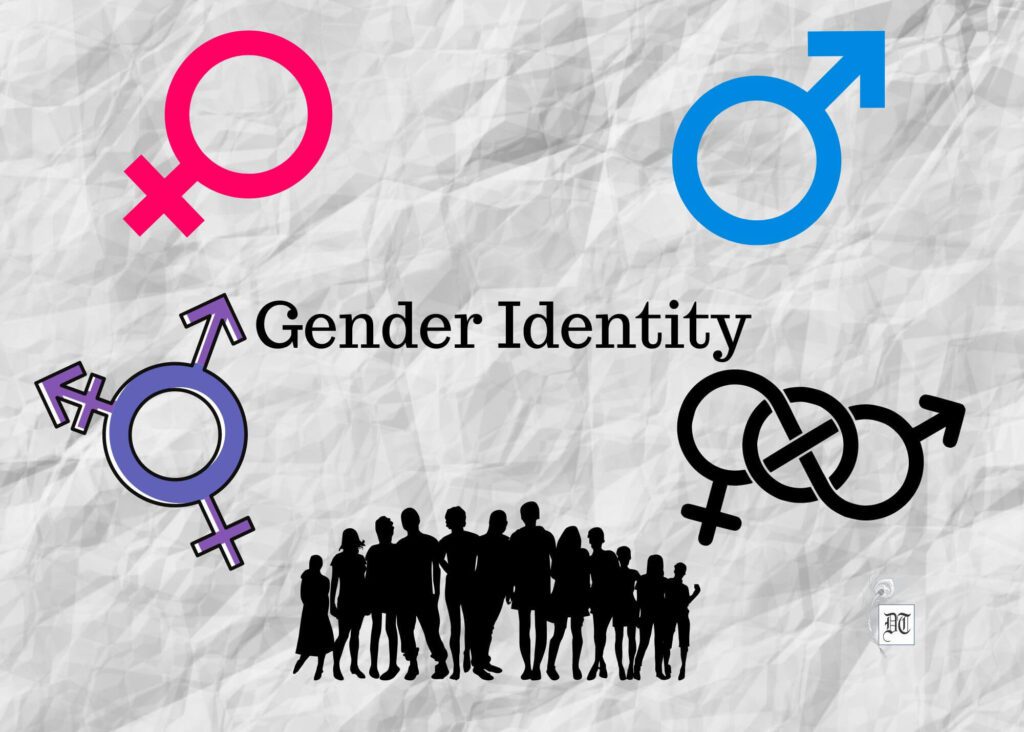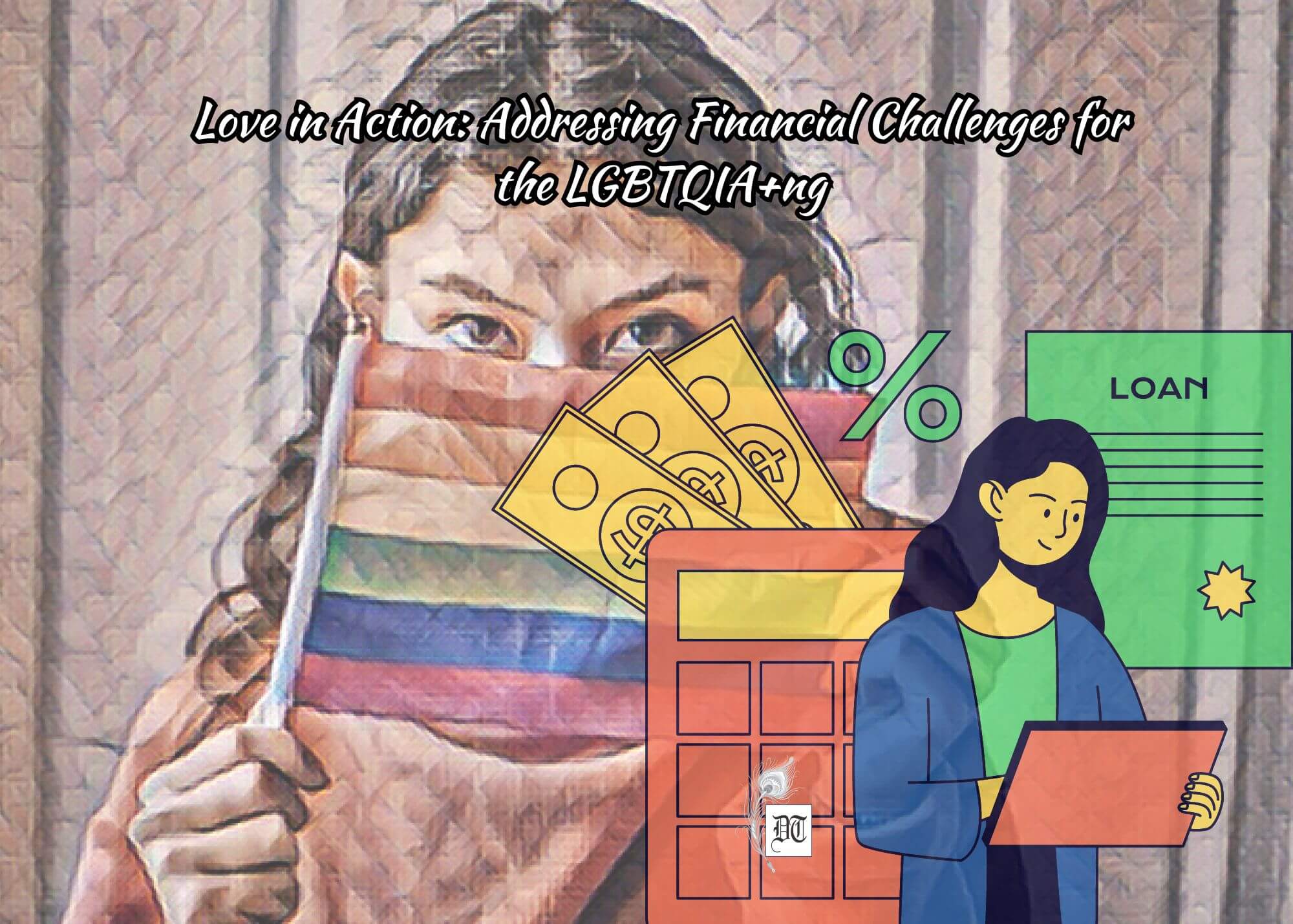Reading Time: 4 minutes
Shaivya emphasises the need for culturally competent and accessible services to address LGBTQIA+ mental health issues caused by discrimination and stigma, exclusively for Different Truths.

In recent times, with society becoming accepting and laws changing to protect the LGBTQIA+ community, members of this community continue to experience mental health challenges as compared to straight and cisgender people. These challenges are due to various societal factors, such as discrimination, prejudices, and stigma based on their sexual orientation. These experiences can contribute to minority stress.
Minority stress is the heightened stress experienced by the members of the marginalized or stigmatized group due to social discrimination. It can manifest in various forms such as anxiety, depression, substance abuse, and even suicidal ideation. This stress can have an impact on both mental health and physical well-being.
The process of coming out of the closet… can be both empowering and challenging.
The process of coming out of the closet or disclosing one’s sexual orientation or gender identity can be both empowering and challenging. Coming out is a significant step in the life of the LGBTQIA+ individual and is often accompanied by potential rejection and discrimination from family, friends, and society. The fear of rejection and discrimination from loved ones can have a deep impact on mental well-being, leading to feelings of isolation, shame, and low self-esteem. Moreover, individuals who are not accepted by their family and friends may face estrangement and homelessness, leading to intensified mental health struggles. Therefore, the process of coming out is not just an act of self-expression, but is a delicate balance of liberation and the toll it takes on the individual’s emotional and psychological health.
To be able to feel comfortable in their own skin can be a complicated journey for LGBTQIA+ people. Many individuals experience a unique challenge known as gender dysphoria. It is caused by a misalignment between one’s gender identity and assigned sex at birth. The emotion when you feel your body doesn’t match your true self (gender identity) can be stressful. It can lead to a lot of stress and emotional pain. There are treatments like gender-affirming surgeries and hormonal therapy to help individuals alleviate gender dysphoria and improve their mental well-being. Unfortunately, getting access to these treatments can be difficult because of the financial constraints and also the lack of healthcare providers who know about LGBTQIA+ health. There are some healthcare policies too that discriminate against the LGBTQIA+ community. This gap in the healthcare sector makes it difficult for many individuals in the community to feel good about themselves.
The LGBTQIA+ community is incredibly diverse…
The LGBTQIA+ community is incredibly diverse, individuals exist within this community with intersecting identities from different backgrounds – different races, ethnicities, socioeconomic status, and abilities. At times these identities can create a bigger challenge when different identities overlap. For instance, LGBTQIA+ people of color might face sexism, racism, and homophobia all at the same time leading to mental health disparity as compared to white counterparts.
Addressing these mental health disparities within the LGBTQIA+ community requires an approach that addresses social, cultural, and systematic factors such as e culturally competent mental health care, supportive communities, accessible mental health services, education and awareness, advocacy for legal protection, anti-discrimination policies, and self-care and resilience. These strategies can work towards creating an equitable and inclusive world where the individuals of the LGBTQIA+ can thrive emotionally and mentally.
Taking care of our mental health is equally important as taking care of our physical health, especially in the case of LGBTQIA+ people. It can be difficult to deal with these issues because of the lack of understanding and prejudices from society, especially friends and family. As discussed, the issue of mental health is a compound effect of social cultural, and systematic factors, creating a safe and accepting space, where the LGBTQIA+ community can feel supported, understood, and welcomed can make a huge difference.
Imagine a world where every individual feels good… irrespective of how they identify themselves and who they love.
Imagine a world where every individual feels good about themselves, irrespective of how they identify themselves and who they love. This can only be achieved when society can change its attitude, perception, and the system that makes it hard for LGBTQIA+ individuals to thrive emotionally, mentally, and socially. By speaking out, offering support, understanding the unique challenges faced by individuals, and promoting an affirming and inclusive environment we can work towards reducing mental health disparities can make this world a reality.
References:
1. Meyer, I. H. (2003). Prejudice, social stress, and mental health in lesbian, gay, and bisexual populations: conceptual issues and research evidence. Psychological Bulletin, 129(5), 674–697.
2. Bockting, W. O., Miner, M. H., Swinburne Romine, R. E., Hamilton, A., & Coleman, E. (2013). Stigma, mental health, and resilience in an online sample of the US transgender population. American Journal of Public Health, 103(5), 943–951.
3. Pachankis, J. E., & Goldfried, M. R. (2006). Social anxiety in young gay men. Journal of Anxiety Disorders, 20(8), 996–1015.
4. Testa, R. J., Habarth, J., Peta, J., Balsam, K., & Bockting, W. (2015). Development of the Gender Minority Stress and Resilience Measure. Psychology of Sexual Orientation and Gender Diversity, 2(1), 65–77.
5. Meyer, I. H. (1995). Minority stress and mental health in gay men. Journal of Health and Social Behavior, 36(1), 38–56.
Picture design by Anumita Roy














